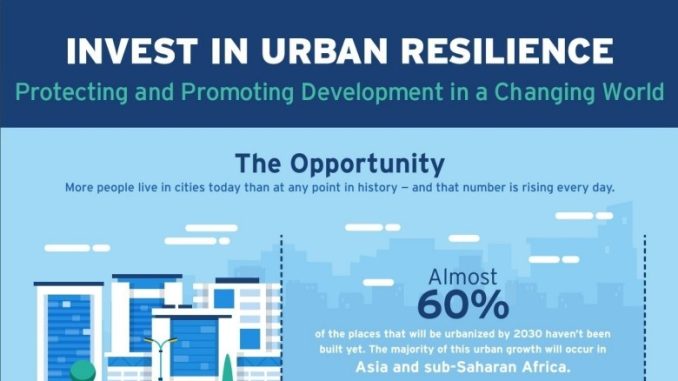
Urban resilience has become a defining priority for cities around the world as they grapple with the challenges of climate change, rapid population growth, and increasingly complex infrastructure demands. The ability of a city to withstand shocks and recover quickly from disruptions is not only a matter of physical preparedness but also of financial stability. Insurance plays a critical role in this equation, providing the mechanisms that allow cities, businesses, and residents to absorb risks and continue functioning even in the face of adversity.
One of the most direct ways insurance contributes to urban resilience is by cushioning the financial impact of disasters. Floods, earthquakes, fires, and storms can cause billions in damages, overwhelming public budgets and leaving communities vulnerable. Insurance ensures that resources are available for rebuilding, reducing the reliance on emergency aid or government bailouts. This financial safety net accelerates recovery, allowing cities to restore infrastructure, housing, and services more quickly and effectively.
Insurance also influences how cities prepare for risks in the first place. Coverage often comes with requirements for risk assessments, safety measures, and compliance with building codes. These conditions encourage proactive investment in resilient infrastructure, from flood defenses to earthquake-resistant construction. By linking coverage to preventive action, insurers help shape urban development in ways that reduce vulnerability and strengthen long-term resilience.
The role of insurance extends beyond physical infrastructure to include social and economic systems. Businesses rely on coverage to protect against interruptions, ensuring that they can continue operating even after a disaster. This continuity is vital for maintaining jobs, supply chains, and essential services that keep cities functioning. Without insurance, many enterprises would struggle to recover, leading to prolonged economic downturns that undermine urban resilience.
Insurance also supports households, providing protection for homes, health, and personal property. Families who are insured are better able to recover from shocks, whether they involve natural disasters, accidents, or medical emergencies. This stability reduces the strain on public welfare systems and ensures that communities can rebuild more equitably. In this way, insurance contributes to social resilience, helping individuals and families maintain security and confidence in uncertain times.
The psychological impact of insurance in urban resilience should not be underestimated. Knowing that coverage exists provides peace of mind, reducing anxiety about potential losses. This reassurance encourages residents and businesses to invest in cities, fostering growth and innovation. Confidence in the ability to recover from setbacks is a key ingredient in resilience, and insurance provides that assurance in tangible ways.
Governments often collaborate with insurers to strengthen urban resilience. Public-private partnerships can expand access to coverage, particularly in high-risk areas where premiums might otherwise be unaffordable. Subsidies, reinsurance programs, and regulatory frameworks help ensure that insurance remains available and effective. These collaborations highlight the role of insurance as a public good, supporting resilience not just for individuals but for entire communities.
Technology is reshaping how insurance supports urban resilience. Data analytics, satellite imagery, and predictive modeling allow insurers to assess risks more accurately and design policies that reflect real conditions. These tools also help cities identify vulnerabilities and prioritize investments in resilience. Digital innovations make insurance more responsive and transparent, aligning coverage with the evolving needs of urban environments.
Global crises have further emphasized the importance of insurance in urban resilience. Climate change has increased the frequency and severity of extreme weather events, while pandemics have disrupted economies and strained healthcare systems. Insurance systems that adapt to these challenges provide critical support, covering losses and enabling recovery. By cushioning the impact of crises, insurance ensures that cities remain functional and resilient even in uncertain times.
Insurance also plays a role in equity within urban resilience. Vulnerable populations are often disproportionately affected by disasters, lacking the resources to recover quickly. Affordable insurance products tailored to these communities help level the playing field, ensuring that resilience is not limited to the wealthy. This inclusivity strengthens cities by broadening participation in recovery and reducing disparities in outcomes.
The economic implications of insurance in urban resilience are significant. By stabilizing recovery and encouraging investment, insurance supports broader economic growth. Cities that are insured against risks are more attractive to investors, businesses, and residents, reinforcing their competitiveness. Insurance, in this way, becomes a driver of urban development, linking resilience with prosperity.
Looking ahead, the role of insurance in urban resilience will continue to expand. As cities face new challenges, from rising sea levels to digital vulnerabilities, insurers will need to innovate with products that address evolving risks. Collaboration between insurers, governments, and communities will be essential in creating sustainable solutions. The challenge is not only to provide financial protection but also to foster confidence and resilience in systems that prioritize sustainability.
Ultimately, insurance is more than a financial safeguard in urban resilience; it is a partner in stability and renewal. By absorbing risks, encouraging preventive measures, and fostering trust, insurance enables cities to withstand shocks and emerge stronger. Its impact extends beyond financial stability to the very principles of resilience, empowering communities to adapt, recover, and thrive in the face of uncertainty. In a world where urban challenges are constant, insurance provides the foundation for progress, ensuring that resilience is not just an aspiration but a reality.